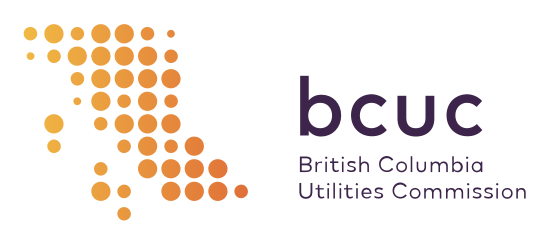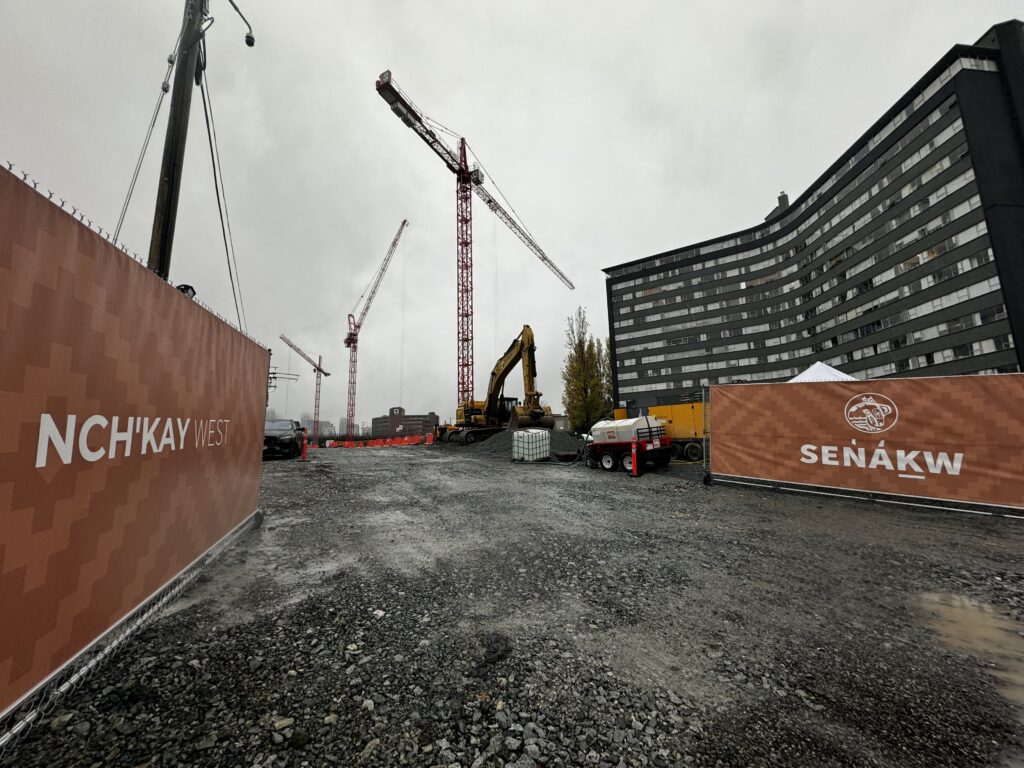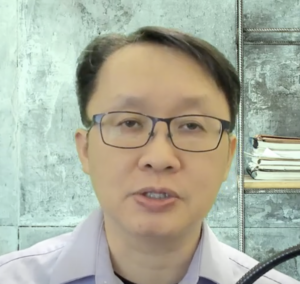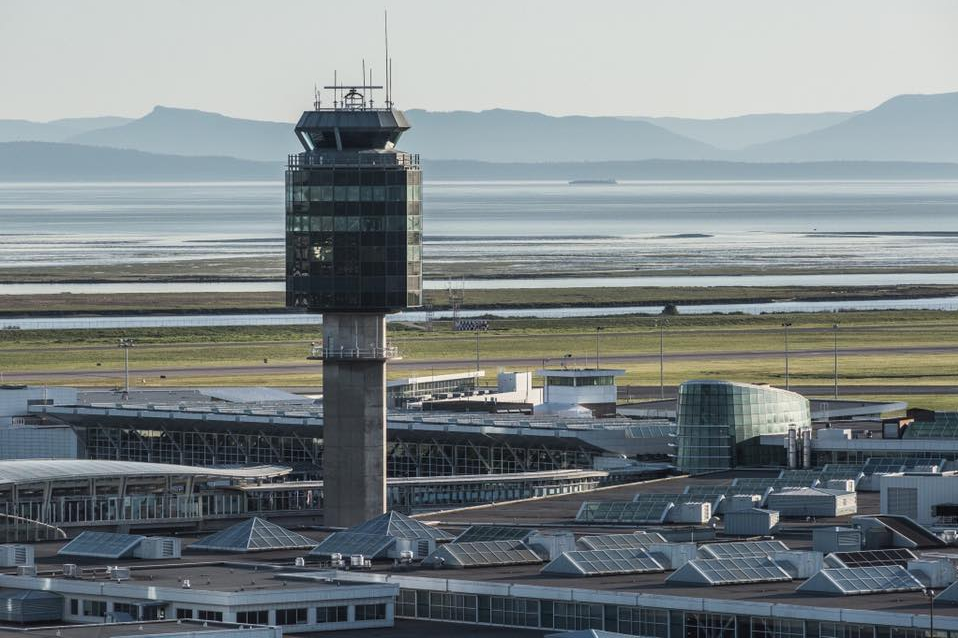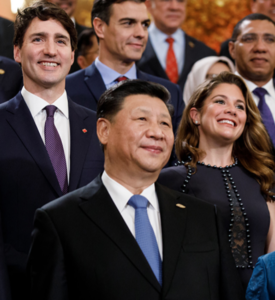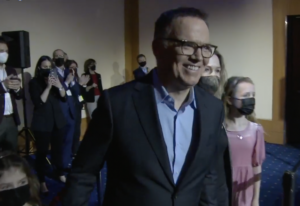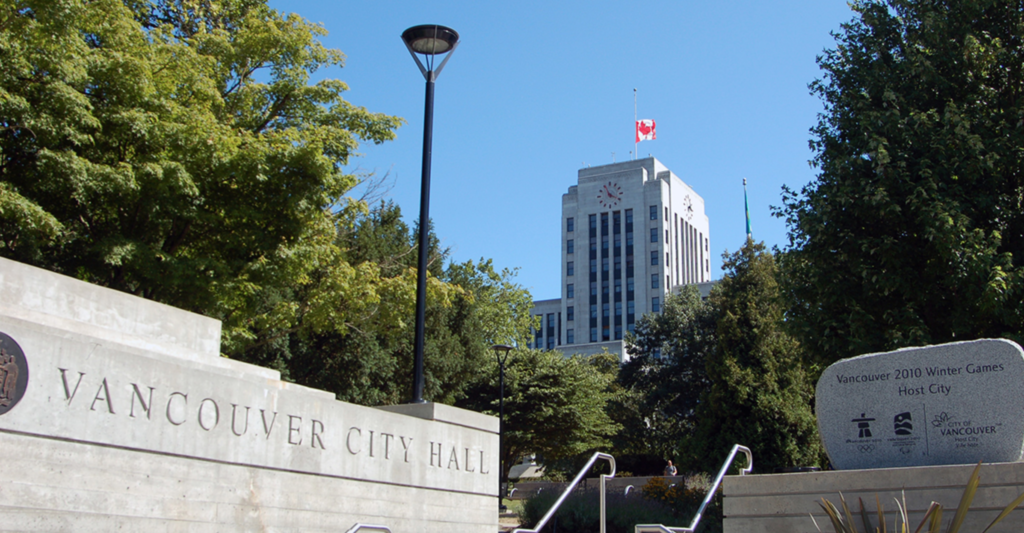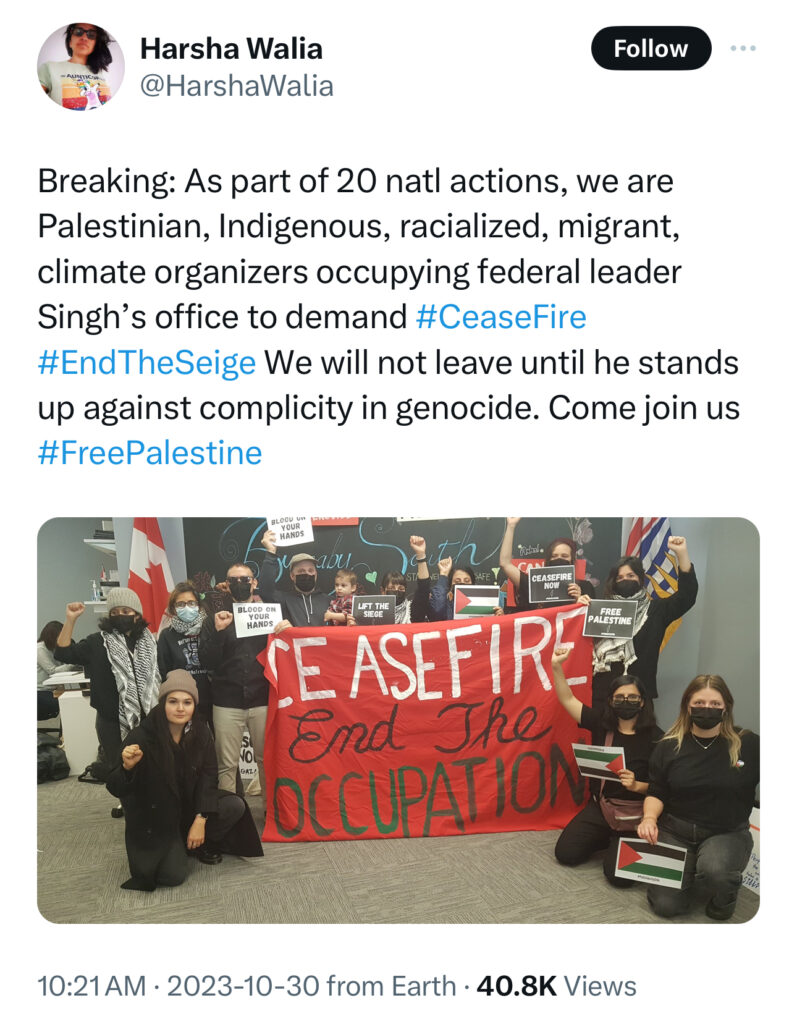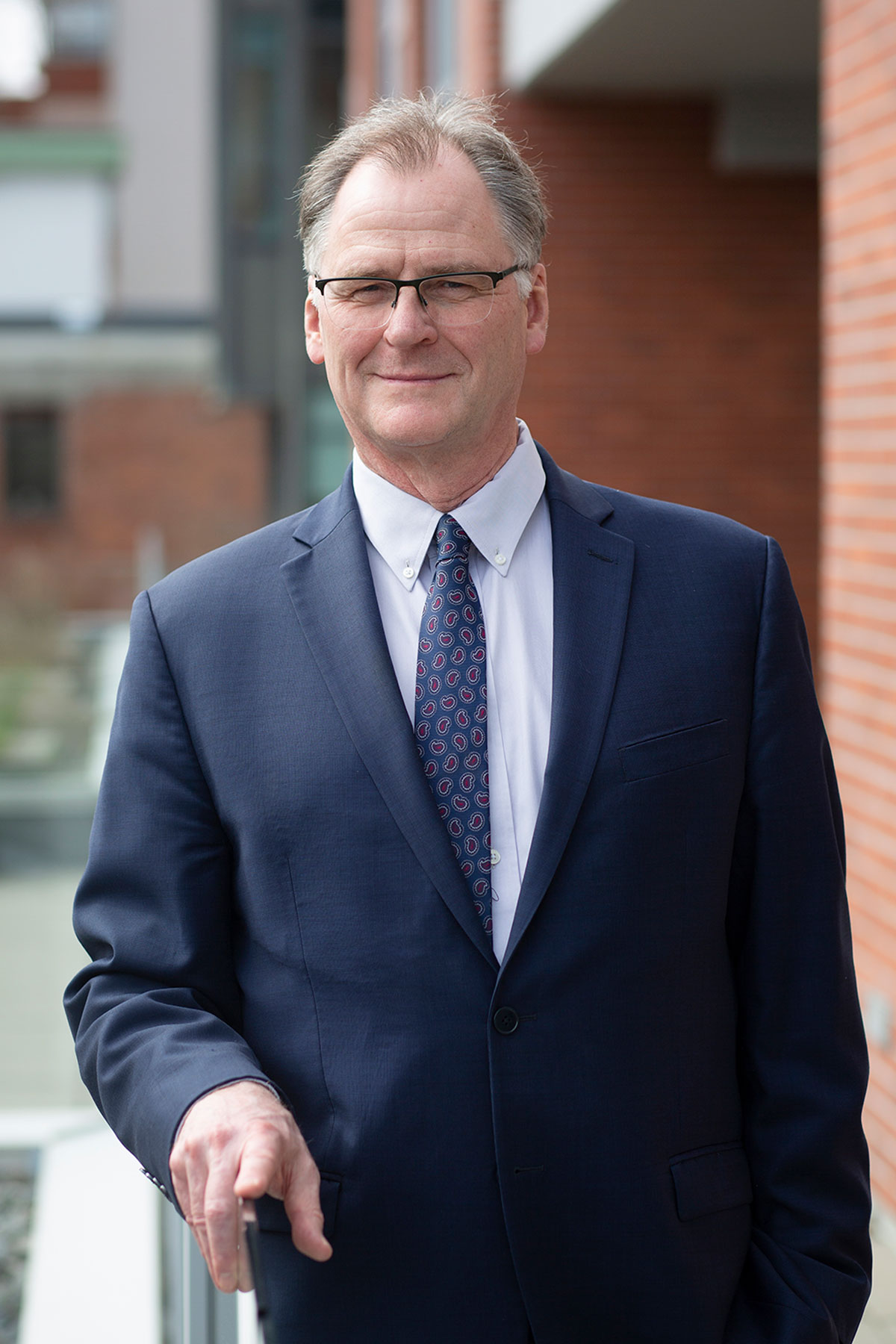Vancouver luxury real estate developer Westbank denies trouble
Bob Mackin
One of Vancouver’s biggest, most-dynamic developers is denying that it is experiencing financial trouble.
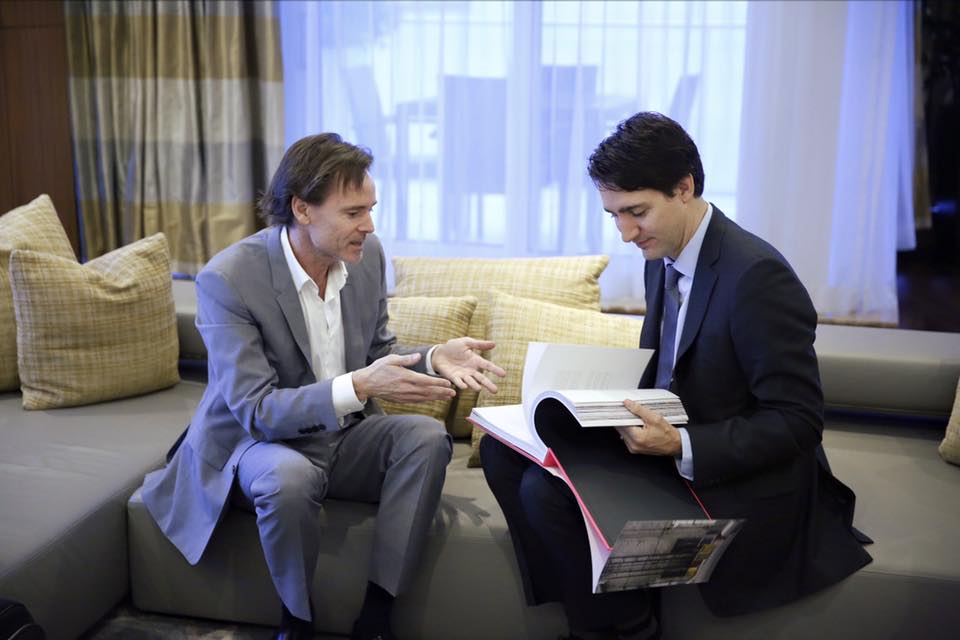
Westbank’s Ian Gillespie with Prime Minister Justin Trudeau in 2015 (Westbank)
In an undated, unsigned, one-page statement that is circulating among real estate agents, Westbank suggested it would take legal action to protect its reputation against “malicious rumours circulating online surrounding the integrity of our company and success of our developments.”
“With all the real challenges the world is facing today, it is disappointing to see so much energy being wasted on fabricated speculation about our business,” said the statement, obtained by Glacier Media. “We thank our clients, realtors and partners for their continued partnership.”
Rumours had been circulating for several days prior to the Globe and Mail’s Nov. 6 report that EllisDon construction had left Westbank’s Mirvish Village site in Toronto and is suing for $8.7 million in unpaid bills. Three other companies, Global Precast, Flat Iron Building Group Inc. and BV Glazing Systems Ltd., have also filed multimillion-dollar claims, none of which has been proven in court.
In the statement, Westbank said it has closed approximately two-thirds of sales at Alberni by Kengo Kuma in Vancouver’s West End and awaits the imminent occupancy permit for the final tranche of units. It also said it is making progress on Oakridge Park with partner QuadReal, the real estate arm of the B.C. Investment Management Corp. public sector pension fund.
“Concrete continues to be poured on all [Oakridge] residential towers, while glazing installation has begun on the lower floors,” it said. “The team is making substantial progress on the food hall, parkade and shopping centre levels.”
The statement, which does not appear on the Westbank website or its social media accounts, mentions Mirvish Village and Butterfly in Vancouver’s West End, but not Senakw, the Westbank partnership with the Squamish Nation’s Nch’kay Development Corp. The project on Squamish Nation reserve land beside the Burrard Bridge is benefitting from a $1.4 billion Canada Mortgage and Housing Corp. loan announced more than a year ago by Prime Minister Justin Trudeau.
Neither Ian Duke, Westbank’s head of acquisitions and development, nor Ariele Peterson, the external relations manager, responded to repeated messages from a reporter.
Same for QuadReal and longtime Westbank financing partner Peterson Group.
Nicola Wealth Management had been rumoured as a lifeline for Westbank, but corporate relations manager Victoria Emslie denied involvement.
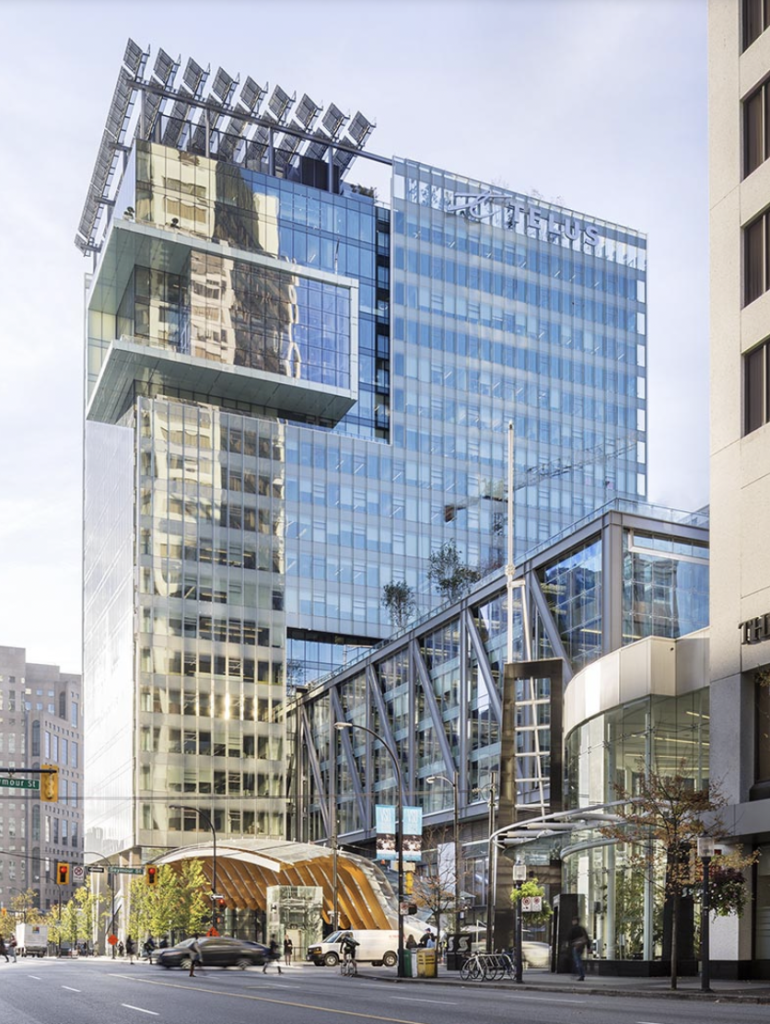
Telus Garden (Telus)
“We’re not currently speaking to any of their people or recruiting any of their talent, nor are we involved in any of their development,” Emslie said.
The company Ian Gillespie founded in 1992 markets itself as a luxury residential and mixed-use developer, with satellite offices in Seattle, Toronto, Taipei, Shanghai, Hong Kong and Tokyo.
Some of its downtown Vancouver skyscrapers include Telus Garden, Rogers Tower, Fairmont Pacific Rim, Shangri-La and Vancouver House. It has forged a reputation for offbeat public art at or near its projects, such a giant, spinning chandelier under the Granville Bridge near Vancouver House and the body of a Boeing 747 between towers at 1200 Stewart in Seattle.
The Westbank website lists seven San Jose projects in development or under construction.
While Real Estate Board of Greater Vancouver reported year-over-year apartment sales were up 4.9 per cent in October, at a benchmark price of $770,200, interest rates and construction costs remain high.
When the Bank of Canada kept the interest rate at 5 per cent on Oct. 25, Gov. Tiff Macklem acknowledged inflation had fallen since summer 2022, but it remained too high.
Statistics Canada’s construction price index report for the third quarter said residential building costs had risen 6 per cent, year-over-year, across 11 major markets, including Vancouver.
“Skilled labour shortages and the resulting increases in wage rates, availability of materials, and interest rate pressure were all reported as key factors impacting the construction sector,” said the StatsCan report.
In February, developer Coromandel was briefly under court protection due to a $700 million debt.
—with a file from Claire Wilson
Support theBreaker.news for as low as $2 a month on Patreon. Find out how. Click here.
Bob Mackin One of Vancouver’s biggest, most-dynamic developers







